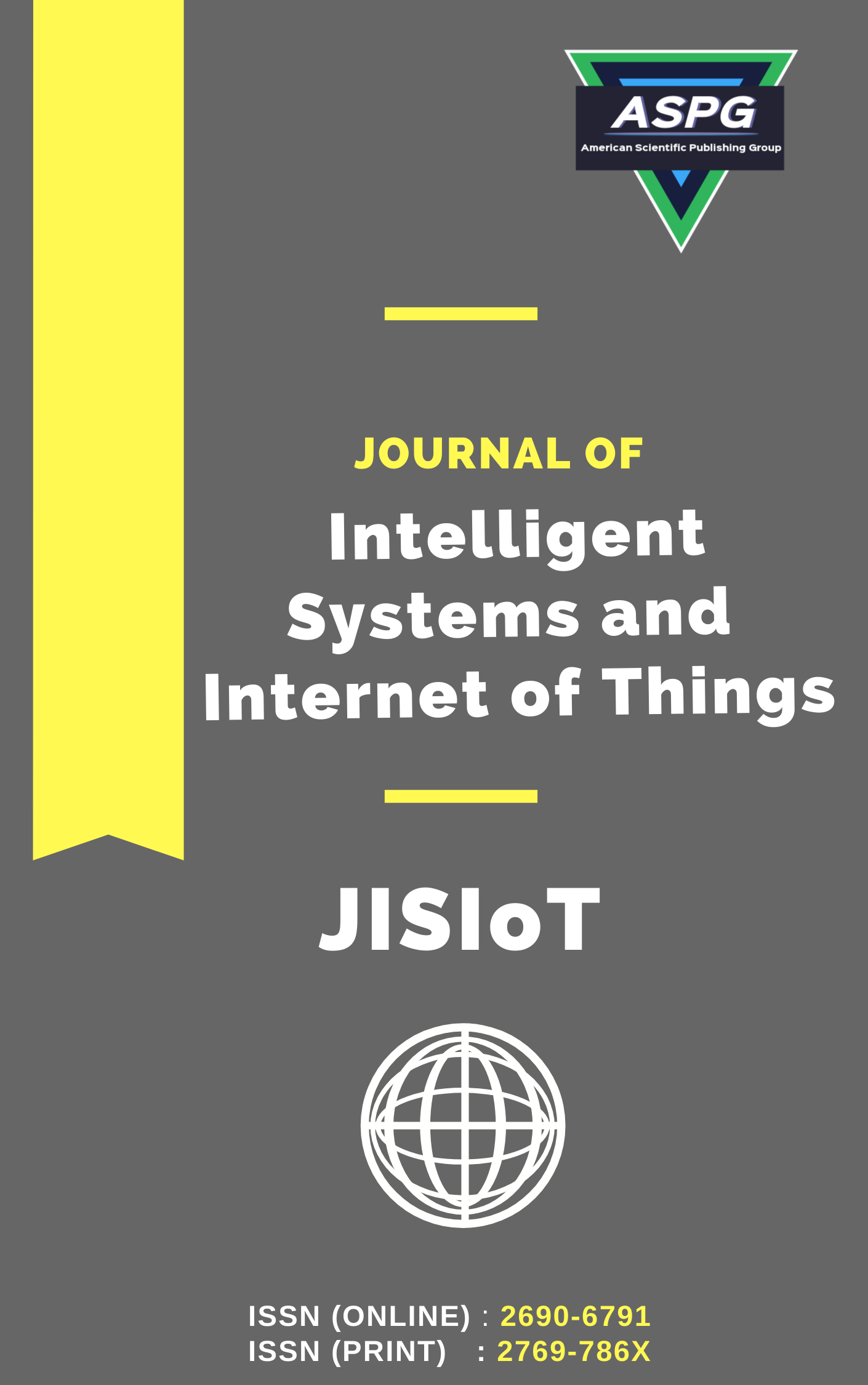

Volume 17 , Issue 2 , PP: 36-49, 2025 | Cite this article as | XML | Html | PDF | Full Length Article
Dena Kadhim Muhsen 1 * , Bushra Fuaad Khmas 2 , Amjed Abbas Ahmed 3 , Ahmed T. Sadiq 4
Doi: https://doi.org/10.54216/JISIoT.170204
This study investigates the application of AI-powered predictive analytics in chronic disease management, focusing on the most effective machine learning models for predicting patient risk and optimizing healthcare interventions, like Random Forest, Linear Regression, Support Vector Machines (SVM), K-Nearest Neighbors (KNN), and Gradient Boosting were evaluated using a dataset of 10,000 patient records. The models were assessed based on their accuracy, interpretability, and clinical relevance. Gradient Boosting attained the highest predictive accuracy, with an AUC of 0.89. Random Forest followed closely with an AUC of 0.85, offering a good balance of accuracy and interpretability. Linear Regression, with an AUC of 0.75, demonstrated the trade-offs between simplicity and model performance, while SVM and KNN performed with AUCs of 0.82 and 0.78, respectively, with SVM being robust but facing scalability challenges and KNN being less practical for large datasets. These AI models improve patient outcomes, decrease healthcare costs, and optimize healthcare delivery.
AI , Predictive analytics , Chronic disease management , Machine learning models , Personalized care
[1] N. Seyala and S. N. Abdullah, "Cluster Analysis on Longitudinal Data of Patients with Kidney Dialysis using a Smoothing Cubic B-Spline Model," Int. J. Math. Stat. Comput. Sci., vol. 2, pp. 85–95, 2023. doi: 10.59543/ijmscs.v2i.8337.
[2] D. K. Muhsen, S. M. Ali, R. M. Zaki, and A. A. Ahmed, "Arguments Extraction for E-health Services Based on Text Mining Tools," Periodicals of Eng. and Nat. Sci., vol. 9, no. 3, pp. 309–316, 2021.
[3] G. T. Igwama, J. A. Olaboye, C. M. D. A. Maha, and S. Abdul, "AI-Powered Predictive Analytics in Chronic Disease Management: Regulatory and Ethical Considerations," Int. J. Eng. Res. Dev., vol. 20, no. 8, pp. 152-157, 2024.
[4] K. Rahman, P. Pasam, S. Addimulam, and V. M. Natakam, "Leveraging AI for Chronic Disease Management: A New Horizon in Medical Research," Malaysian J. Med. Biol. Res., vol. 9, no. 2, pp. 81-90, 2022.
[5] M. Rassias, "Artificial Neural Networks (ANNs) in Chronic Disease Management: The Future of AI in Patient Care," J. Health Informatics, vol. 15, no. 4, pp. 220-225, 2022.
[6] S. M. Alturfi, D. K. Muhsen, M. A. Mohammed, I. T. Aziz, and M. Aljshamee, "A Combination Techniques of Intrusion Prevention and Detection for Cloud Computing," J. Phys.: Conf. Ser., vol. 1804, Baghdad, Iraq, 2021, doi: 10.1088/1742-6596/1804/1/012121.
[7] A. F. Al-zubidi, A. K. Farhan, and E. M. El-Kenawy, "Surveying Machine Learning in Cyberattack Datasets: A Comprehensive Analysis," J. Soft Comput. Comput. Appl., vol. 1, no. 1, Article 1000, 2024.
[8] S. Tarumi et al., "Leveraging Artificial Intelligence to Improve Chronic Disease Care: Methods and Application to Pharmacotherapy Decision Support for Type-2 Diabetes Mellitus," Methods Inf. Med., vol. 60, no. S 01, pp. e32-e43, 2021.
[9] N. Safiullin et al., "Digital Recognition System Attacks Through Noisy Image Using Machine Learning," J. AL-Turath Univ. College, vol. 15, no. 1, pp. 45-50, 2024.
[10] W. Jameel, S. M. Kadhem, and A. R. Abbas, "Detecting Deepfakes with Deep Learning and Gabor Filters," Aro-the Sci. J. Koya Univ., vol. 10, no. 1, pp. 18–22, 2022.
[11] A. F. Al-zubidi, A. K. Farhan, and S. M. Towfek, "Predicting DoS and DDoS Attacks in Network Security Scenarios Using a Hybrid Deep Learning Model," J. Intell. Syst., vol. 33, no. 1, 20230195, 2024.
[12] A. F. Al-zubidi, A. K. Farhan, and M. E. El-Kenawy, "Surveying Machine Learning in Cyberattack Datasets: A Comprehensive Analysis," J. Soft Comput. Comput., vol. 1, no. 1, 2024.
[13] R. A. A. Ahmed and H. Y. H. E. Al-Bagoury, "Artificial Intelligence in Healthcare Enhancements in Diagnosis, Telemedicine, Education, and Resource Management," J. Contemp. Healthc. Anal., vol. 6, no. 12, pp. 1-12, 2022.
[14] A. Rahman, M. Karmakar, and P. Debnath, "Predictive Analytics for Healthcare: Improving Patient Outcomes in the US through Machine Learning," Revista de Inteligencia Artificial en Medicina, vol. 14, no. 1, pp. 595-624, 2023.
[15] T. T. Wan and H. S. Wan, "Predictive Analytics with a Transdisciplinary Framework in Promoting Patient-Centric Care of Polychronic Conditions: Trends, Challenges, and Solutions," AI, vol. 4, no. 3, pp. 482-490, 2023.
[16] N. K. Alapati and V. Valleru, "AI-Driven Predictive Analytics for Early Disease Detection in Healthcare," MZ Comput. J., vol. 4, no. 2, 2023.
[17] U. Soni, G. Jethava, and A. Ganatra, "Latest Advancements in Credit Risk Assessment with Machine Learning and Deep Learning Techniques," Cybernetics Inform. Technol., vol. 24, no. 4, pp. 22–44, 2024.
[18] A. K. Subramanian et al., "Linear Regression Trust Management System for IoT Systems," Cybernetics Inform. Technol., vol. 21, no. 4, pp. 15–27, 2021.
[19] D. K. Muhsen, T. W. A. Khairi, and N. I. A. Alhamza, "Machine Learning System Using Modified Random Forest Algorithm," Lecture Notes in Networks and Systems, vol. 508, pp. 508–515, Springer, 2021.
[20] K. S. Mohsen and A. T. Sadiq, "Random Forest Algorithm Using Accuracy-Based Ranking," J. Comput. Theor. Nanoscience, vol. 16, no. 3, pp. 1039–1045, 2019.
[21] T. Ashraf, S. Hasanen, and N. Mohammad, "Impostor Detection Based on Finger Veins," Iraq. J. Comput. Commun. Cont. Syst. Eng., vol. 21, no. 3, pp. 98-111, 2021.
[22] H. Ahmed, T. Rashid, and A. Sidiq, "Face Behavior Recognition through Support Vector Machines," Int. J. Adv. Comput. Sci. Appl., vol. 7, no. 1, pp. 101–108, 2016.
[23] D. R. Kishor and N. B. Venkateswarlu, "Hybridization of Expectation-Maximization and K-Means Algorithms for Better Clustering Performance," Cybernetics Inform. Technol., vol. 16, no. 2, pp. 16–34, 2016.
[24] M. K. Rafsanjani and M. Pourshaban, "Benchmark of Different Gradient Descents in OCR," Cybernetics Inform. Technol., vol. 14, no. 2, pp. 114–126, 2014.